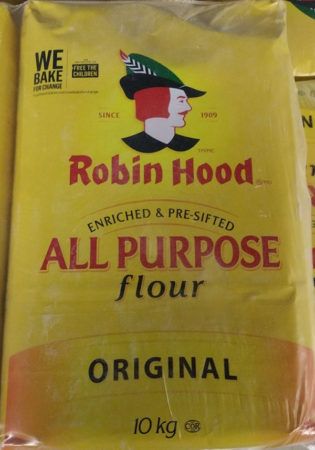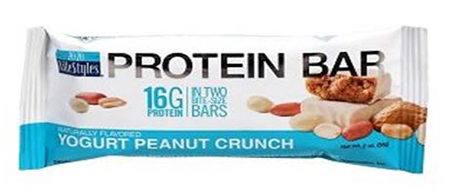Outbreak of E. coli infection in flour triggers a major recall in Canada
 The Public Health Agency of Canada is investigating an outbreak of Escherichia coli O121 that was linked to flour from Robin Hood. So far there have been 25 cases of E. coli O121 in four provinces: British Columbia (12), Saskatchewan (4), Alberta (4) and Newfoundland and Labrador (5) with a matching genetic fingerprint in all these cases.
The Public Health Agency of Canada is investigating an outbreak of Escherichia coli O121 that was linked to flour from Robin Hood. So far there have been 25 cases of E. coli O121 in four provinces: British Columbia (12), Saskatchewan (4), Alberta (4) and Newfoundland and Labrador (5) with a matching genetic fingerprint in all these cases.
During the food safety investigation, samples of Robin Hood flour were collected and tested positive for E. coli O121. The illness onset dates range from November 2016 to late February 2017. Six individuals have been hospitalized. These individuals have since recovered or are recovering. No deaths have been reported. The 54% of the ill people were males, with an average age of 24 years.
According to the company that produced the Robin Hood flour, the recalled product was produced at a mill in Saskatoon.
More Recall details: On March 28, 2017 – Smucker Foods of Canada Corp. recalled Robin Hood brand All Purpose Flour, Original from the marketplace due to possible E. coli O121 contamination. This recall was triggered by findings by the Canadian Food Inspection Agency (CFIA) during its investigation into a foodborne illness outbreak.
The affected flour comes in 10-kilogram bags with a best before date of April 17, 2018, and was sold in British Columbia, Alberta, Saskatchewan and Manitoba.
This outbreak reminds us of last year’s General Mill outbreak in the US that sickened 63 people in 24 states, with 17 people hospitalized. The median age in that outbreak was low, at 18, mostly because teenagers and children are more likely to eat raw dough and play with products made with raw dough.
The Canadian and the General Mills outbreaks is a reminder that it is not safe to taste or eat raw dough or batter, regardless of the type of flour used, as raw flour can be contaminated with dangerous bacteria such as E. coli.
Recall due to E. coli in protein bars
The FDA announced the recall of 36,957 Yogurt Peanut Crunch bars from Pro Sports Club of Bellevue, WA because on March 23, 2017 the products may have been contaminated with Escherichia coli O157:H7.
The Yogurt Peanut Crunch Bars were sold directly to clients at the PRO Sports facilities in Washington (Bellevue, Redmond and Seattle cities) between August 8, 2016 and March 10, 2017. The product was also sold via the Internet. No illnesses related to the consumption of the Yogurt Peanut Crunch Bars have been reported to date.
The recall was initiated after the manufacturer was notified that an ingredient used in the Yogurt Peanut Crunch Bars was recalled by its supplier Soy Nut Butter Company of Glenview, Illinois because it was found to contain E. coli O157:H7.
This is a secondary recall due to a soy-based peanut butter substitute linked to a nationwide E. coli outbreak that happened earlier this month. Of the 23 confirmed E. colivictims in the soy butter outbreak, 20 are younger than 18. Ages range from 1 to 48 with a median age among victims of 8 years old. Ten of the victims had severe symptoms that required hospitalization and seven of them developed HUS. Twenty of the 23 victims reported eating I.M. Healthy brand soy nut butter products in the days before they became ill.
H & B Packing Co., Inc. Recalls Boneless Beef Products Due to Possible E. coli O103 Contamination
On March 19, U.S. Department of Agriculture’s Food Safety and Inspection Service(FSIS) announced that H & B Packing Co., Inc., a Waco, Texas establishment, recalled approximately 79,461 pounds of boneless beef products that may have been contaminated with the rare E. coli O103.
The problem was discovered when FSIS was notified by the State of Texas’ Meat Safety Assurance Unit about a positive non-O157 Shiga toxin-producing E. coli sample. There have been no confirmed reports of illnesses due to consumption of these products. The beef products were shipped to food manufacturers in Texas.
